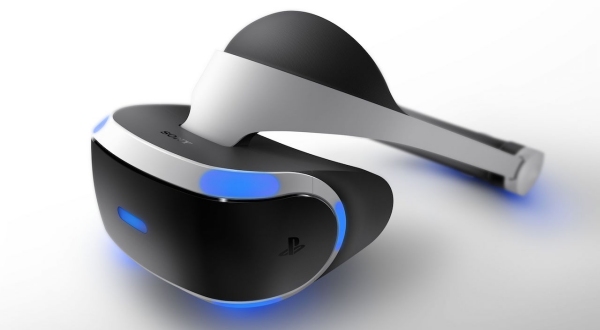The Real Reason It's So Hard To Get People Excited About VR

Your Daily Blend of Entertainment News
You are now subscribed
Your newsletter sign-up was successful
Virtual reality in gaming has been around for a long time but it never really took off and became mainstream. There were attempts by Nintendo back in the 1990s, amongst other companies, but the whole thing was a difficult sell. Even now, Sony notes that it's hard to get people excited for VR.
Why is it hard to get people excited for virtual reality gaming, though? Well, in an interview with Game Informer director of PlayStation Magic Lab, Richard Marks, explained that the biggest hurdle for VR is that marketing it requires actual first-hand experience to understand it, so it has to rely on mind-share growth through word-of-mouth...
You can't broadcast VR, so you can't see a commercial for it and really get the idea of it. We are trying to do as many outreach things as we can, but there are only so many different people we can reach that way. So really, the answer to this is once the product goes on sale, those initial purchasers will be showing their friends and they'll be able to reach far more people than we can reach with direct demos ourselves.
Speaking of demos, Game Informer's Brian Shea was curious as to why all the gameplay demos for the PlayStation VR have been so short. According to Sony's worldwide studios president, Shuhei Yoshida, the reason the demos have to be so short is so that people can hop in and test it out, get a feel for it, and share the experience with others. They also want as many people to play test the VR games and hopefully return for more and convince friends or family to try it out.
According to Yoshida-san, Sony has been using a lot of short multiplayer demos, like the game Rigs, to help get as many people playing with the PlayStation VR headset as possible and give them an idea of how immersive the experience can be. Additionally, it's also mentioned that short demos limit the effects of motion sickness.
Yoshida brings up a really good point about how sick people used to get playing games like Wolfenstein 3D and Doom, so they try to keep the PS VR demos short. He explained how, in the early days of games with first-person 3D vector designs, there were a lot of reports about people becoming sick from the screen oriented motion. Over the years we hear about it far less than back in the day, but now we have to deal with the fact that virtual reality presents a new hurdle of people getting motion sickness from the experience.
Over time I imagine the motion sickness may become less of an issue, but the new wave of virtual reality technology and software really will have to slowly edge its way into the marketplace. Sony at least seems to recognize that this isn't going to be the sort of thing that will rapidly become adopted in the consumer market like the Wii's motion controller.
Specific to Sony, though, they're more concerned about price and word-of-mouth. On the PC side of things, Valve and Facebook have been a lot more lax about their VR devices the HTC Vive and Oculus Rift, as the PC community has already taken to virtual reality headsets with available devkits and many games already officially or unofficially supporting PC compatible VR headsets. So basically Sony just has to convince the PS4 console audience that the PlayStation VR will be worth the price of admission.
Your Daily Blend of Entertainment News
The VR headset for the PlayStation 4 will go live in the early first quarter of 2016.
Staff Writer at CinemaBlend.

